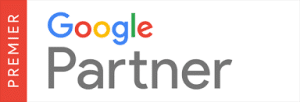As a small business owner, embarking on the journey of paid search advertising, also known as pay-per-click or PPC marketing, may initially appear overwhelming, especially when your advertising budgets are limited. However, PPC offers a unique advantage; it empowers you with precise control over your advertising spend and, if managed wisely, can yield a significant return on your investment.
Here are eight ways you can harness this power and make the most of your search campaigns, even with a modest budget.
1. Start with Clear Objectives
Prior to embarking on a PPC campaign, it is imperative to establish clear objectives and have a strategy in mind for your paid efforts. Are you aiming to enhance brand awareness, drive traffic to your website, or boost sales for a specific product? Defining these goals will enable you to design more targeted campaigns and measure success more effectively, ultimately leading to a more successful PPC strategy for your small business.
2. Choose the Right Platform
Google Ads is the most popular PPC platform due to its vast reach, but other options exist. Platforms like Bing (Microsoft) Ads can be less competitive and, consequently, less costly. Social media platforms like Facebook and LinkedIn also offer valuable opportunities, especially if your target audience is highly active. Evaluate where your customers spend their time online, and start with one platform to maximize your focus and minimize your spend.
3. Focus on Keyword Research
Keywords are the cornerstone of most PPC search campaigns. For small businesses, focusing on product-specific and long-tail keywords is usually wise. These specific, less competitive phrases are typically cheaper to bid on and can attract more qualified leads. Use free tools like Google’s Keyword Planner or other free keyword research tools to find relevant keywords that align with your business offerings and your audience’s search behavior.
4. Set a Budget Cap
One of the most significant advantages of PPC is the ability to control spending. Each platform allows advertisers to set a daily or monthly budget cap to ensure your campaigns don’t overspend. Start small and increase your investment gradually as you begin to see returns. This approach lets you experiment without significant financial risk. Using return on ad spend (ROAS) is an integral part of PPC success.
5. Optimize Your Ad Copy and Landing Pages
Your ad copy and landing pages should be compelling and directly related to the keywords you’re bidding on. This relevance can increase your Quality Score in Google Ads, lowering your cost per click and improving ad placement. Ensuring your landing pages are optimized for conversions is vital. A good landing page has a clear call-to-action, fast loading times, and a mobile-friendly design.
6. Monitor and Adjust
PPC is a dynamic advertising method that requires constant fine-tuning. Regularly assessing your campaigns’ performance and making necessary adjustments is crucial. Experiment with different ad copy and visuals, refine your keywords, and optimize your bids. Utilize tools like the Google Ads interface or Google Analytics to track which ads and keywords are converting and which are not. Monitoring and adjusting your efforts allow you to allocate your budget more effectively and ensure the ongoing success of your PPC campaigns.
7. Learn from Others
Look for case studies or competitors who are successfully using PPC. What keywords are they targeting? What does their ad copy look like? While you should always use your own strategy, learning what works for others in your industry can provide valuable insights. Since the digital advertising space is ever-evolving, it is also important to keep up with PPC industry trends. Learning from experts in the PPC space can help elevate your small business’ advertising efforts.
8. Consider Using Automated Tools
As you gain more confidence in PPC, consider leveraging automated bidding strategies like Google Ads Smart Bidding. These tools are designed to save you time and optimize your bids to maximize returns. They use algorithmic machine learning to adjust your bids in real-time, ensuring you get the most conversions for your specified budget.
As you already know, PPC advertising has the potential to be a game-changer for small businesses. It offers the flexibility to start small and scale up as you witness success. By setting clear objectives, choosing the right platform, focusing on detailed keyword research, and continuously optimizing your campaigns, you can pave the way for substantial growth and success, even on a limited budget.




